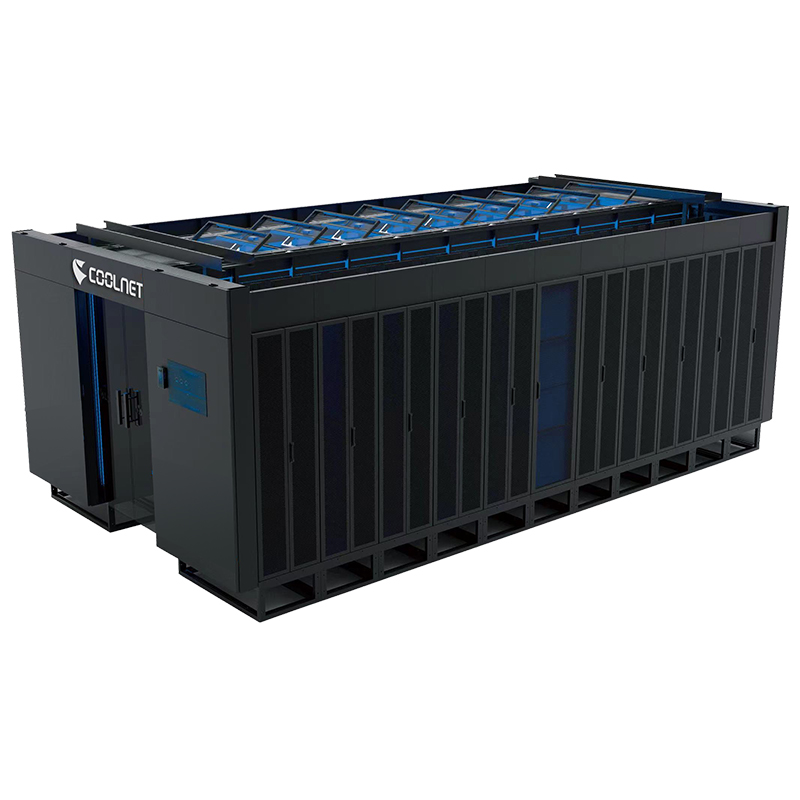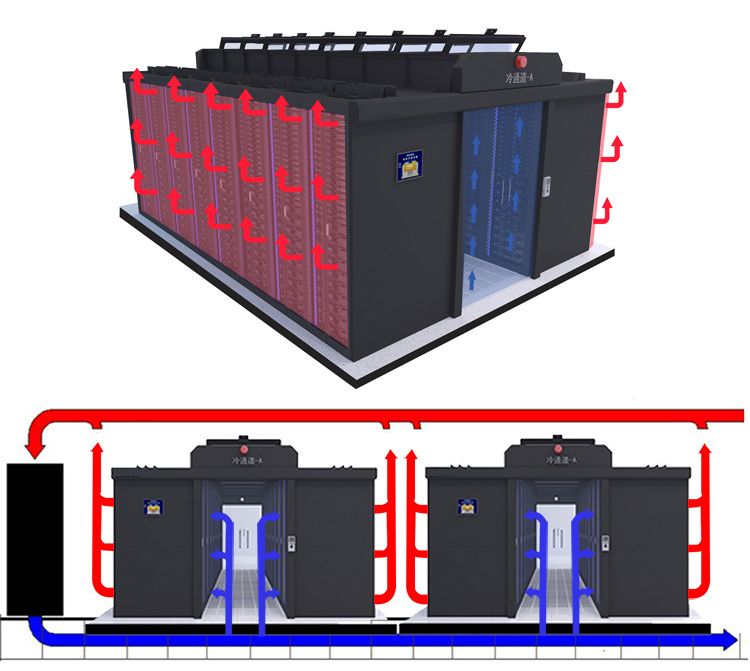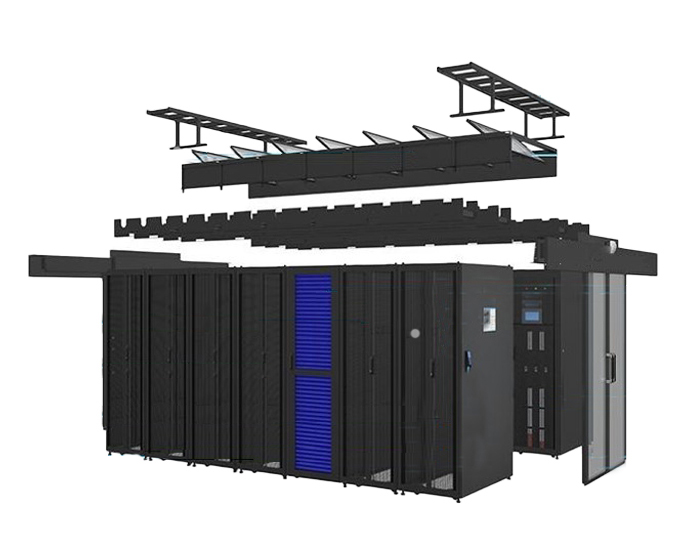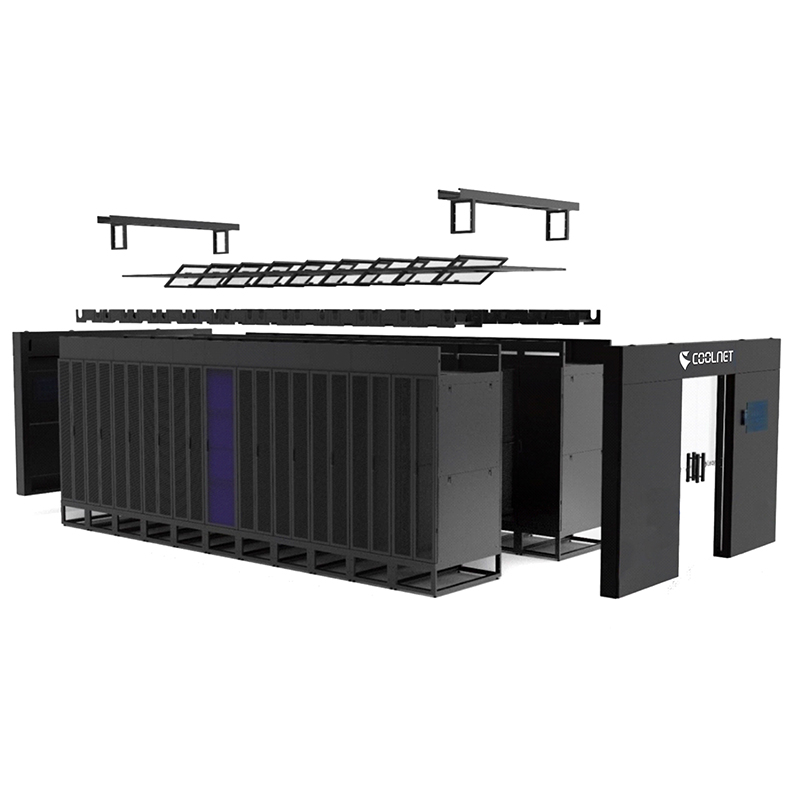- High Reliability Standard Module
Modular data center adopts modularization, standardization and high reliability design, which makes the whole system highly stable. It can provide N+1, N+X, 2N and other design solutions in the configuration of power supply and cooling core equipment according to customer needs and actual situation, which is safe and reliable and meets various standards of Tier3 to Tier4. - Rapid deployment and greatly shortened construction cycle
The micro-module data center improves the planning and design efficiency, and the system architecture can be reasonably configured according to the IT business requirements, such as the arrangement of cabinets of modular units, the selected power supply and distribution equipment, the cooling solution, the monitoring system, etc.; the mass production of micro-modules improves the delivery speed, and the standardized components reduce the on-site assembly workload and accelerate the installation speed; the micro-modules can be assembled and pre-tested in the factory, which guarantees the system debugging speed and reliability; the modular design, combined with integrated delivery of infrastructure + IT equipment, can shorten the data center deployment cycle to a few weeks. For container data center, it is even possible to realize the overall interconnection in the factory and directly transport it to the site, and then put it into operation directly after completing the connection of water, electricity and network.
High Reliability Standard Modular Data Center
PRODUCT LIST

Product introduction:
In response to the trend of server development such as cloud computing, virtualization, centralization and high density, the modular data center adopts a modular design concept to minimize the coupling of infrastructure to the server room environment. It integrates subsystems such as power supply and distribution, cooling, cabinets, airflow containment, integrated cabling, and dynamic loop monitoring to improve the overall operational efficiency of the data center and achieve rapid deployment, elastic expansion, and green energy saving.
Modular data centers can meet the urgent needs of IT business departments for future data center infrastructure construction, such as standardized design, component factory prefabrication, rapid on-line deployment, effective reduction of initial investment, in-module energy pooling management, high utilization of dynamic IT infrastructure resources, intelligent operation and maintenance management, guaranteeing important business continuity, providing shared IT services (such as cross-business infrastructure, information application sharing, etc.), rapid response to changes in business requirements, green and energy-efficient data centers, etc.

Features:

Advantage:
- Realize phased construction and easy scalability
Modular data center integrates modular components such as end cooling, end power distribution, end wiring, etc. On the basis of reducing initial investment, it realizes on-demand deployment of data center and avoids idle waste of fixed assets, while ensuring optimal infrastructure configuration of any IT space of large data center. Micro-modular data centers significantly reduce the cost of data centers during their useful life. For the needs of large IDC construction, it is easy to carry out rapid expansion by using micro-modular data center at any later time point and when customers require rapid business increase. - Green Energy Saving
At present, the cost of power usage in data centers accounts for the largest proportion of TCO over the life of the data center. Modular data centers enable IT equipment to be powered and cooled on demand, allowing the capacity of the power supply and cooling system to better match the load demand, thereby improving efficiency and reducing over-provisioning. The micro-module power conversion rate is up to 95%, and due to the standardized interfaces and micro-module architecture, significant power savings are achieved, resulting in system energy savings.
The modular data center adopts closed isolation of cold channels, so that hot and cold airflow do not interfere with each other, avoiding the heat island effect caused by airflow crosstalk and avoiding airflow and cooling loss. At the same time, it uses inter-column air conditioning and adopts the near heat source design of refrigeration equipment to improve the cooling efficiency, solve the problem of local hot spots, and reduce the data center operation cost. Micro-module data center combines water cooling system and natural cooling system, and PUE can be reduced to below 1.5.

Applications:
- Small data centers built by government, enterprises and institutions
- Medium and large data centers providing private cloud services
- Large-scale data centers for Internet and operators providing public cloud services
- Meet the customized needs of Internet, communication, government, military, education, electric power, oil and other enterprises
Leave A Message
If you are interested in our products and want to know more details, please leave a message here, we will reply you as soon as we can.




